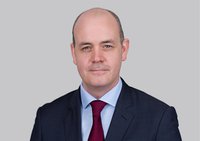Extension of the Senior Managers and Certification Regime – 9 December 2019
What is happening?
From 9 December 2019, the Senior Managers and Certification Regime (SM&CR) will apply to all financial services firms that are regulated solely by the FCA and authorised under the Financial Services and Markets Act 2000 (FSMA). Firms affected by the changes need to ensure they are ready for the new regime.
Why is this happening and what is the background?
The SM&CR replaced the Approved Persons Regime as part of implementing the recommendations in the final report of the Parliamentary Commission on Banking Standards to support a change in culture in financial services firms.
The SM&CR originally came into force on 7 March 2016 and applied to UK banks, building societies, credit unions, branches of foreign banks operating in the UK and the largest investment firms regulated by the Prudential Regulation Authority (PRA) and the Financial Conduct Authority (FCA).
For dual-regulated insurers (those regulated by both the FCA and PRA), the SM&CR replaced the revised version of the FCA’s Approved Persons Regime and the PRA's Senior Insurance Managers Regime (SIMR) from 10 December 2018.
Once the extension on 9 December 2019 has been implemented, the SM&CR will essentially replace the Approved Persons Regime for all firms. The extension affects almost every firm regulated by the FCA, from very small firms and those with limited permissions (including sole traders and limited permission consumer credit firms) to some of the largest global firms.
Outline of the SM&CR
There are 3 key parts to the SM&CR:
- the Senior Managers Regime;
- the Certification Regime; and
- the Conduct Rules.
The Senior Managers Regime
The most senior people (Senior Managers) performing key roles (Senior Management Functions) need FCA approval before starting their roles. The FCA Handbook sets out which roles are Senior Management Functions. Every Senior Manager needs to have a 'Statement of Responsibilities' that clearly says what they are responsible and accountable for.
There are some specific responsibilities that firms need to allocate to their Senior Managers, which are known as 'Prescribed Responsibilities'. This is to make sure there is a Senior Manager accountable for the SM&CR and key conduct and prudential risks.
A Senior Manager must also be responsible for each of the firm's business functions and activities. These responsibilities are called 'Overall Responsibilities'.
Firms won’t have to apply for re-approval of individuals where there is no significant change in the individual’s role before and after the commencement of the SM&CR. Firms will however need to confirm who will be a Senior Manager and consider existing FCA approvals for individuals. Firms will also need to ensure each Senior Manager has a Statement of Responsibility and that all of the Prescribed Responsibilities are included. Firms will also need to confirm the position as to the Chair, whether this is Executive or Non-Executive and that the correct approval is in place.
The Certification Regime
The Certification Regime applies to employees whose role means it's possible for them to cause significant harm to the firm or customers. These roles are called 'Certification Functions'.
These people don't need to be approved by the FCA, but firms need to check and certify that they are fit and proper to perform their role. This has to be done at least once a year. Firms need to identify which of the Certification Functions apply and identify the individuals that need to be certified on an annual basis.
Firms will need to ensure they fit the annual fitness and propriety checks for Certification staff and Senior Managers into their existing HR processes.
The Conduct Rules
The Conduct Rules can be found in the COCON chapter of the FCA Handbook and aim to improve standards of individual behaviour in financial services. There are two tiers of Conduct Rules, the first tier being individual conduct rules which apply to all staff except ancillary staff (such as receptionists, security guards and cleaners) and the second tier being the Senior Manager Conduct Rules.
Firms need to make sure staff are trained in and know that the Conduct Rules apply to them, and to be fully aware of their reporting requirements to the FCA when someone breaches a Conduct Rule. Firms will also need to identify ancillary staff (i.e. those to whom the FCA’s Conduct Rules do not apply).
Regulatory references and criminal records checks
Firms will need to ensure the Regulatory Reference Requirements fit into their existing recruitment processes. Firms will need to ensure they meet requirements on such issues as requesting and providing references, disclosure of information, use of a mandatory template and the updating of references.
Firms will also need to ensure they have the appropriate processes in place to obtain Criminal Records checks for new Senior Managers and check whether they are registered with the Disclosure and Barring Service (DBS) and the equivalent agencies in Scotland and Northern Ireland.
Implementation dates
Firms affected by the changes will move to the new regime from 9 December 2019.
By 9 December 2019, Firms will need to have identified and trained Senior Managers and staff performing Certification Functions who must abide by the Conduct Rules from this date.
9 December 2019 - 9 December 2020 – Firms will have 12 months to complete the initial certification process for staff performing Certification Functions and train other staff on the Conduct Rules.
Doyle Clayton’s combination of leading employment lawyers and regulatory expertise means we are well placed to support our clients in implementing the Senior Managers and Certification Regime. Please contact Charles Herbert or your usual Doyle Clayton contact to discuss how we can help you with preparing for these changes.
The articles published on this website, current at the date of publication, are for reference purposes only. They do not constitute legal advice and should not be relied upon as such. Specific legal advice about your own circumstances should always be sought separately before taking any action.

